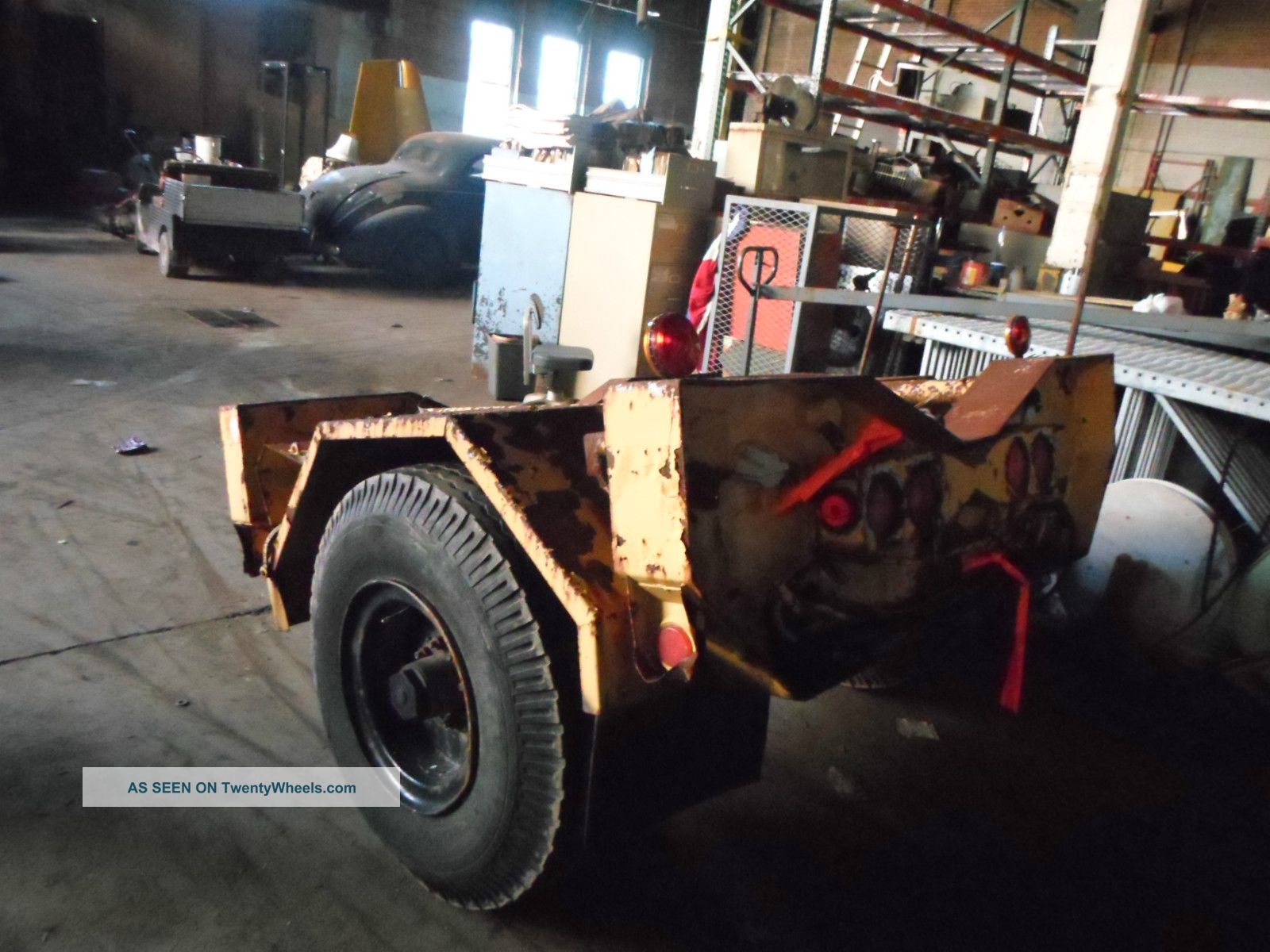26000 GVW Trucks For Sale: Your Comprehensive Guide to the Sweet Spot of Commercial Hauling sale.truckstrend.com
In the dynamic world of commercial transportation, finding the right vehicle can make all the difference to your bottom line. Among the myriad options, 26,000 GVW (Gross Vehicle Weight) trucks occupy a unique and highly sought-after position. These workhorses represent a crucial sweet spot in the commercial vehicle market, offering significant hauling capabilities without the stringent regulatory burdens associated with heavier trucks. For businesses ranging from local delivery services to specialized construction crews, understanding the nuances of 26,000 GVW trucks for sale is key to unlocking efficiency, expanding operational scope, and maintaining a competitive edge. This comprehensive guide will delve into every aspect of these versatile vehicles, helping you navigate the market and make an informed purchase.
Understanding 26,000 GVW: The CDL Sweet Spot
26000 GVW Trucks For Sale: Your Comprehensive Guide to the Sweet Spot of Commercial Hauling
Gross Vehicle Weight (GVW) refers to the maximum operating weight of a vehicle as specified by the manufacturer, including the vehicle’s chassis, body, engine, fuel, accessories, driver, passengers, and cargo. The 26,000-pound (or 11,793 kg) threshold is particularly significant in the United States and Canada, primarily due to Commercial Driver’s License (CDL) requirements.
Generally, a CDL is required to operate any single vehicle with a GVWR (Gross Vehicle Weight Rating) or GVW of 26,001 pounds or more, or any combination of vehicles with a GCWR (Gross Combination Weight Rating) of 26,001 pounds or more (where the towed unit has a GVWR of more than 10,000 pounds). This means that a truck with a GVW of exactly 26,000 pounds typically does not require the driver to possess a CDL in most jurisdictions.
This distinction offers immense benefits to businesses:
- Wider Driver Pool: You can hire drivers who hold a standard Class D (or equivalent) driver’s license, significantly expanding your pool of eligible employees and reducing recruitment challenges.
- Reduced Training Costs: Avoiding CDL requirements means less specialized training, drug testing, and medical certification overheads for your drivers.
- Lower Insurance Premiums: Insurance carriers often classify non-CDL required vehicles differently, potentially leading to lower premiums compared to heavier, CDL-required trucks.
- Less Regulatory Burden: While still subject to DOT regulations, operating non-CDL trucks often involves fewer complex compliance requirements compared to Class 7 or 8 vehicles.

These advantages make 26,000 GVW trucks an incredibly attractive and practical choice for a vast array of commercial applications where significant hauling capacity is needed, but not the full-blown capabilities of a tractor-trailer.
Common Applications and Industries for 26,000 GVW Trucks
The versatility of 26,000 GVW trucks allows them to serve a broad spectrum of industries, making them a staple in many commercial fleets. Their ability to handle substantial loads while remaining agile enough for urban environments is a key selling point.
- Parcel and Local Delivery: Ideal for last-mile delivery of goods, furniture, appliances, and e-commerce shipments, especially in congested city areas where larger trucks struggle with maneuverability.
- Landscaping and Tree Services: Often configured as dump trucks, flatbeds, or chipper trucks, they transport soil, mulch, rocks, trees, and equipment, or haul away debris.
- Construction: Used for transporting smaller equipment (mini excavators, skid steers), building materials (lumber, drywall), and tools to job sites. Dump truck variants are common for moving aggregates.
- Food and Beverage Distribution: Refrigerated (reefer) units at this GVW are perfect for delivering perishable goods, dairy, produce, and beverages to restaurants, stores, and institutions.
- Moving and Storage Companies: Box trucks of this size are the backbone of residential and commercial moving operations, providing ample space for household goods and office equipment.
- Utility Companies: Service body trucks with specialized compartments and cranes are used by electricians, plumbers, telecommunications, and gas companies for on-site repairs and installations.
- Waste Management: Smaller roll-off or front-loader trucks at this GVW are suitable for residential or small commercial waste collection routes.
- Tow and Recovery Services: Medium-duty wreckers fall into this category, capable of towing passenger vehicles, light trucks, and smaller commercial vans.


Key Types of 26,000 GVW Trucks Available
The chassis of a 26,000 GVW truck can be upfitted with various body types to suit specific business needs. When searching for 26,000 GVW trucks for sale, you’ll encounter several common configurations:
- Box Trucks (Straight Trucks/Cube Vans): The most prevalent type, featuring an enclosed cargo area. They come in various lengths (e.g., 20 ft, 24 ft, 26 ft) and often include features like roll-up or swing doors, and liftgates for easy loading and unloading. Perfect for general freight, moving, and delivery.
- Flatbed Trucks: Characterized by an open, flat cargo area, making them ideal for transporting oversized items, machinery, building materials, and anything that needs to be loaded by crane or forklift from the side.
- Dump Trucks: Equipped with a hydraulic ram that lifts the bed, allowing material to be "dumped" out. Common for hauling sand, gravel, dirt, mulch, and construction debris.
- Stake Body Trucks: Similar to flatbeds but with removable stakes or panels around the perimeter, offering flexibility between an open flatbed and a contained cargo area. Versatile for mixed loads.
- Refrigerated Trucks (Reefers): Box trucks fitted with a refrigeration unit to maintain a controlled temperature, essential for transporting perishable goods like food, pharmaceuticals, and flowers.
- Service/Utility Trucks: Designed with external compartments and often a utility crane or air compressor, these trucks serve mobile technicians, plumbers, electricians, and construction crews.
- Tow Trucks/Wreckers: Configured with a boom and/or wheel-lift apparatus for towing disabled or impounded vehicles.
- Cab & Chassis: These are essentially just the truck’s frame, engine, and cab, ready to be fitted with a custom body by a specialized upfitter. This offers maximum customization.
Important Considerations When Buying a 26,000 GVW Truck
Purchasing a commercial truck is a significant investment. Careful consideration of several factors will ensure you select a vehicle that meets your operational demands and financial constraints.
- New vs. Used:
- New: Offers the latest technology, full warranties, and no wear-and-tear issues. Higher upfront cost, but potentially lower maintenance for the first few years.
- Used: Lower purchase price, faster depreciation has already occurred. Requires thorough inspection and due diligence regarding maintenance history. Can be a great value if well-maintained.
- Condition and Maintenance History (for used trucks): Always request detailed maintenance records. A pre-purchase inspection by a trusted, independent mechanic specializing in commercial vehicles is non-negotiable. Check for rust, fluid leaks, tire wear, brake condition, and frame integrity.
- Engine and Drivetrain: Most 26,000 GVW trucks come with either diesel or gasoline engines.
- Diesel: Better fuel economy, higher torque for heavy loads, longer lifespan, but higher initial cost and maintenance.
- Gasoline: Lower initial cost, quieter operation, easier maintenance for some, but typically less fuel-efficient and shorter lifespan for heavy commercial use. Consider automatic vs. manual transmission based on driver preference and application.
- Body Type and Upfit Needs: Crucially, the truck’s body must match your specific job. Consider length, height, door types (roll-up, swing), liftgate capacity, refrigeration needs, and any specialized equipment mounting.
- Payload Capacity: While the GVW is 26,000 lbs, the actual payload capacity will be significantly less, as it’s the GVW minus the truck’s curb weight. Ensure the remaining capacity is sufficient for your typical loads.
- Brakes and Tires: Essential for safety and performance. Inspect brake pads, rotors, drums, and air lines (if applicable). Tires should have adequate tread depth and be correctly rated for the truck’s GVW.
- Mileage and Hours (for used trucks): For diesel engines, high mileage isn’t always a deal-breaker if maintenance records are impeccable. Engine hours can be a better indicator for vehicles that idle frequently.
- Emissions Regulations: Be aware of local and federal emissions standards. Newer diesel trucks will have Diesel Exhaust Fluid (DEF) systems, which add an operational cost but are required for compliance.
- Budget and Financing: Beyond the purchase price, factor in insurance, fuel, maintenance, repairs, registration, and potential financing costs. Explore various financing options like traditional loans, leases, or lines of credit.
- Dealer Reputation: Choose a reputable dealer with a strong track record, good customer service, and access to parts and service.
Tips for Finding and Purchasing Your Ideal 26,000 GVW Truck
Navigating the market for 26,000 GVW trucks requires a strategic approach.
- Define Your Exact Needs: Before you start looking, clearly outline what the truck will be used for: type of cargo, typical weight, routes (highway vs. city), required body type, and desired features.
- Research Reputable Sources:
- Commercial Truck Dealerships: Offer new and certified used trucks, financing, and service.
- Online Marketplaces: Websites like TruckPaper.com, CommercialTruckTrader.com, eBay Motors, and Ritchie Bros. Auctioneers are excellent resources for finding a wide variety of trucks from dealers and private sellers nationwide.
- Local Classifieds & Auctions: Can sometimes yield hidden gems, but require more caution and expertise.
- Conduct Thorough Due Diligence:
- Vehicle History Report: Obtain a VIN check to review accident history, title issues, and reported mileage.
- Professional Inspection: As mentioned, this is paramount for used trucks.
- Test Drive: Drive the truck empty and, if possible, with a representative load. Pay attention to engine performance, transmission shifts, brake feel, steering, and any unusual noises.
- Negotiate Wisely: Be prepared to negotiate the price, especially for used trucks. Research market values for similar vehicles to ensure you’re getting a fair deal.
- Understand Legal and Registration Requirements: Be aware of state-specific registration fees, annual inspections, and any specific operating permits required for commercial vehicles.
- Consider Warranties: For used trucks, inquire if any extended warranties are available or if the manufacturer’s warranty is transferable.
Potential Challenges and Solutions
Even with careful planning, challenges can arise. Being prepared can save time and money.
- Finding the Right Configuration: Sometimes, a standard off-the-lot truck won’t perfectly match your niche.
- Solution: Consider a cab & chassis unit and work with a specialized upfitter to create a custom body that precisely fits your operational needs. This might take longer but ensures optimal functionality.
- Hidden Mechanical Issues (Used Trucks): Despite inspections, some problems may only surface after purchase.
- Solution: Always get that pre-purchase inspection from an independent mechanic. Set aside a contingency fund for unexpected repairs, especially in the first few months of ownership.
- Compliance with Regulations: Staying within the 26,000 GVW limit and adhering to DOT rules can be complex.
- Solution: Train your drivers thoroughly on weight limits, pre-trip inspections, and hours of service (if applicable). Invest in scales to ensure you’re not inadvertently overloading your truck. Consult with a commercial vehicle compliance expert if unsure.
- Maintenance Costs: Commercial trucks, even at this GVW, can incur significant maintenance expenses.
- Solution: Implement a rigorous preventive maintenance schedule. Budget for regular servicing, tire replacement, and potential major repairs. Consider maintenance contracts with dealers or third-party service providers.
- Fuel Efficiency: Operating costs can quickly add up with rising fuel prices.
- Solution: Choose the most fuel-efficient engine option for your application (often diesel for heavier use). Implement driver training for efficient driving techniques (e.g., avoiding excessive idling, smooth acceleration).
Price Table: Approximate Price Ranges for 26,000 GVW Trucks
Please note that these are approximate ranges and can vary significantly based on brand (e.g., Freightliner, Isuzu, Hino, Ford, Peterbilt, Kenworth, International), year, mileage, condition, specific features, engine type, transmission, and regional market demand.
| Truck Type / Condition | Approximate Price Range (USD) | Key Features / Notes |
|---|---|---|
| New Box Truck | $65,000 – $130,000+ | 20-26 ft body, liftgate often included, full warranty, latest tech. |
| Used Box Truck | $20,000 – $75,000 | Varies greatly by year, mileage (often 100k-400k+), condition. |
| New Flatbed Truck | $60,000 – $120,000+ | Various bed lengths, sometimes includes ramp or winch. |
| Used Flatbed Truck | $18,000 – $65,000 | Condition of bed, frame, and tires are key. |
| New Dump Truck | $70,000 – $140,000+ | Single-axle, various bed sizes (e.g., 10-14 yd³), often diesel. |
| Used Dump Truck | $25,000 – $80,000 | Inspect hydraulic system, frame, and bed integrity. |
| New Refrigerated Truck (Reefer) | $90,000 – $180,000+ | Includes reefer unit, insulated body, higher operating costs. |
| Used Refrigerated Truck (Reefer) | $30,000 – $95,000 | Critical to inspect refrigeration unit’s history and performance. |
| New Cab & Chassis | $50,000 – $90,000+ | Price before custom body installation. |
| Used Cab & Chassis | $15,000 – $50,000 | Excellent base for custom builds, inspect frame carefully. |
Frequently Asked Questions (FAQ) about 26,000 GVW Trucks
Q1: Do I need a CDL to drive a 26,000 GVW truck?
A1: In most U.S. states, no. A 26,000 GVW truck falls just under the 26,001-pound threshold that typically requires a CDL. However, always verify specific state regulations, as some states may have additional requirements for certain vehicle types or endorsements (e.g., for air brakes).
Q2: What is the typical payload capacity of a 26,000 GVW truck?
A2: The actual payload capacity depends on the truck’s curb weight (the weight of the truck itself without cargo). For a 26,000 GVW truck, the payload can range from approximately 10,000 to 15,000 pounds (5 to 7.5 tons), depending on the body type, engine, and other components. Always check the specific truck’s weight specifications.
Q3: Is a gas or diesel engine better for a 26,000 GVW truck?
A3: It depends on your primary use.
- Diesel: Generally preferred for heavy-duty, long-haul, or frequent stop-and-go applications due to better fuel economy, higher torque, and longer engine life. Higher upfront cost and maintenance.
- Gas: Often chosen for lighter loads, shorter routes, or less frequent use due to lower initial cost, quieter operation, and simpler maintenance. Less fuel-efficient under heavy loads.
Q4: Where are the best places to find 26,000 GVW trucks for sale?
A4: Reputable sources include commercial truck dealerships (new and used), online marketplaces like TruckPaper.com, CommercialTruckTrader.com, and eBay Motors, as well as equipment auction sites (e.g., Ritchie Bros.). Local commercial vehicle brokers can also be helpful.
Q5: What should I prioritize when looking at a used 26,000 GVW truck?
A5: Prioritize a professional pre-purchase inspection by an independent mechanic, complete maintenance records, a thorough test drive, and checking for frame damage, excessive rust, and proper operation of all mechanical and electrical systems. Verify the truck’s history via a VIN check.
Q6: What are some common brands that manufacture 26,000 GVW trucks?
A6: Leading manufacturers include Freightliner, Isuzu, Hino, Ford (e.g., F-650, F-750), International, Kenworth, and Peterbilt. Each brand offers various models and configurations at this GVW.
Conclusion
26,000 GVW trucks are more than just vehicles; they are strategic assets for businesses seeking to maximize their operational efficiency without incurring the full complexities of heavy-duty trucking regulations. By offering a robust payload capacity and the advantage of non-CDL operation, they represent a pragmatic and versatile solution for a vast array of industries.
When exploring 26,000 GVW trucks for sale, an informed approach is paramount. Define your needs precisely, research thoroughly, inspect diligently, and consider the total cost of ownership. By doing so, you can acquire a dependable workhorse that not only meets your current demands but also provides the flexibility and reliability necessary for your business to thrive and grow. Make an intelligent investment in your fleet, and watch your operations accelerate.




